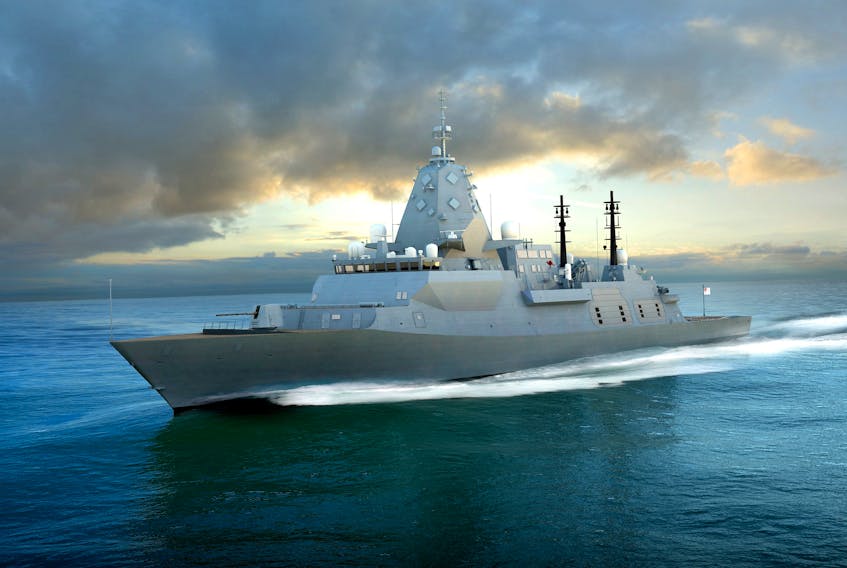Maybe, just maybe, it’s time for Canada to stop building its own naval vessels. They cost too much and Canadian shipyards can’t build them efficiently, or on time.
According to the parliamentary budget officer, the 15 new surface combatant vessels the navy is buying from Irving shipyard in Halifax will cost more than $77 billion. Or about $5.3 billion each.
The surface combatant vessels, or frigates, are based on a design modelled after the Royal Navy’s new Type 26 frigate. The Royal Navy has already ordered three from a shipyard in Scotland, at a cost of Cdn$2.2 billion, about $735 million per frigate.
Maybe the Canadian vessels are a bit better equipped, so let’s add another $1billion and say the British frigates now cost about Cdn$1billion each. The frigates to be built in Halifax are still five times as expensive as the British frigates.
Some people think it is important that Canada produce its own naval vessels, even though there isn’t much evidence that there is the capability to do so efficiently or inexpensively. Why doesn’t Canada save her money and buy her naval vessels from her allies, who know how to build them? It should be noted that when the Royal Navy needed new tankers, it knew that no British shipyard had much expertise in tanker construction, so they purchased four new tankers from South Korea at a cost of Cdn$800 million, or $200 million each
Canada, on the other hand is buying two new joint support ships from Vancouver Shipyards at a cost of $4.1 billion. Again about five times what the Royal Navy is paying for four tankers. Granted, a joint support ship is a bit more complicated than a tanker. Support ships also carry water, ammunition and other dry stores for the RCN ships at sea. But, 10 times the cost per vessel, to add water tanks and some holds for dry storage. Com’on, get real!
Canada doesn’t need to keep buying expensive naval vessels just to keep our shipyards busy. Canada has more ice-invested waters than any country in the world, except for Russia. With global warming changing the Arctic Ocean, Canada is going to need more and more icebreakers to patrol those Arctic waters.
There could be lots of work for Canada’s shipyards just supplying new and replacement vessels for the Coast Guard.
But, whether they are building for the navy, or the Coast Guard, Canadian shipyards need to be more efficient.
Canada’s auditor general recently reported that in a 2012 umbrella agreement between the federal government with the Vancouver and Irving shipyards, both committed to meeting the international ship-construction standards for efficient ship production. Though there was no mandatory date by which these standards were to be met, there was the expectation that Vancouver would meet the standard in three years and Irving in about six years, or 2018.
In other words, the government and the shipyards knew, and acknowledged, they were inefficient. In 2018 the Vancouver yard was assessed, at the time of the auditor general’s audit (2018-20), the government was reviewing the shipyard’s corrective action plan. In 2019 the umbrella agreement with the Irving shipyard was amended giving it four more years to meet world efficiency standards.
But, the Irvings didn’t need a government audit to know their shipyard is inefficient. Irving Oil tankers are bought or leased off-shore. They don’t get their tankers from the Irving shipyard, they’d cost too much.
Alan Holman is a freelance journalist living in Charlottetown.









